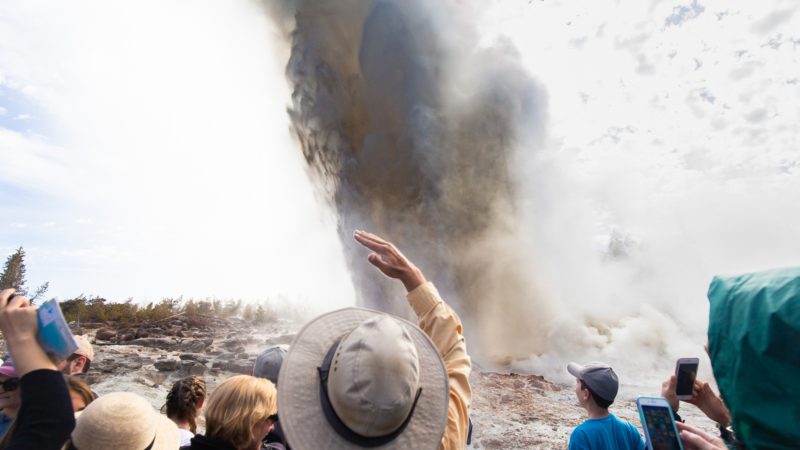New Virus Threatens State’s Cotton Crop
A new virus is threatening Alabama’s cotton crop. Many of the state’s cotton farmers are monitoring their fields more closely after agriculture officials issued warnings about the disease. The cotton leafroll dwarf virus has no known cure. The disease is in other southeastern states, and it has reduced cotton yields — measured in bales — by the tens of thousands.
The virus, which is transmitted by aphids, was first discovered in Alabama in 2017. Today it’s in 24 counties. WBHM’s Andrew Yeager spoke with Austin Hagan, plant pathologist with the Alabama Cooperative Extension System. Hagan says researchers are trying to get a clearer picture of the damage so far from the virus. “That’s why this year we’ve got a more aggressive survey program in order to try and establish the distribution and severity of the disease,” Hagan says. “Now we’ve got to put some numbers behind them.” Hagan says officials are trying to determine whether the virus is intensifying.
The impact of the virus has varied across the state. There were major losses in Baldwin County. A number of cotton fields there had 100% infection levels and didn’t yield any cotton and showed severe damage, Hagan says. Other fields, the virus appeared to have hit late enough and resulted in smaller yield loss. But overall, he says, the loss has been relatively small — several thousand acres compared with 340,000 acres of cotton across the state.
The Alabama Cooperative Extension System says the virus diminishes blooms and bolls in the upper canopy, resulting in lower yields. The disease mostly affects late-planted cotton. Officials recommend farmers plant earlier to reduce the chances of severe infection.
Photo by Cotton Harves
Mass trial shines a light on rape culture in France
A harrowing and unprecedented trial in France is exposing how pornography, chatrooms and men’s disdain for or hazy understanding of consent is fueling rape culture.
What’s your favorite thing about fall?
With cooler mornings and shorter days, if feels like fall is finally here. So what’s your favorite thing about fall? We put that question to people at our recent News and Brews community pop-up in Cullman.
Teammates LeBron and Bronny James make history as the NBA’s first father-son duo
The Jameses, who both play for the L.A. Lakers, shared the court for several minutes on the NBA's opening night. They join a very small club of father-son teammates in American professional sports.
After John le Carré’s death, his son had the ‘daunting’ task to revive George Smiley
Nick Harkaway grew up hearing his dad read drafts of his George Smiley novels. He picks up le Carré's beloved spymaster character in the new novel, Karla's Choice.
When Steamboat goes WHOOSH, scientists look for answers
What triggers geysers to go off is still not well understood. A new paper shows that one small earthquake likely triggered an eruption of the world's tallest active geyser, Steamboat.
Trump’s ex-chief of staff warns his former boss would rule like a ‘fascist’
John Kelly is one of several Trump-era White House officials to publicly criticize their former boss, arguing that Trump is not fit to hold office again.






